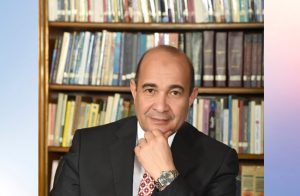Regardless of US President Joe Biden’s vision, his country’s currency has nothing to do with the current slowdown on the global economic scene. The dollar has already contributed to this slowdown in light of an inflationary wave that does not seem to subside in the New Year.
The United States, “like others,” was forced to increase interest rates in succession, hoping to control inflation in one way or another, but the matter did not go as the legislators desired. Indeed, inflation in America did not reach the decimal point, whereas, in countries such as Britain, which ranks sixth on the list of the largest economies in the world, it has reached the level that spreads terror.
Because things are not going, as they should, the negative signs on the global economy are undoubtedly visible during the New Year.
Expectations about the state of the economy in 2023 vary within a limited range between those who believe that the slowdown will continue or those who assert that a recession is coming this year, regardless of any developments or changes. Moreover, if there is growth, it will not rise more than 2.7 per cent, according to the International Monetary Fund, which has been reducing its forecasts for this growth since the middle of last year.
Developments in the economic scene, from the outbreak of the Corona pandemic until the last day of 2022, eventually led to inevitable adjustments to all expectations as a whole. In addition, if the IMF’s expectations are correct, the global economy will be in the weakest condition since 2001 if the period of the global economic crisis in 2008 and the stages of the pandemic are excluded.
It must be noted here that the IMF is the same one that described the global economic conditions as “gloomy”. Nevertheless, the most vital question remains. Will the economy enter a recession or not? The answer just is how far interest rates will reach in the next few months.
All indications show that it will rise to face rising inflation. There are no other ways for legislators here and there to curb the gathering of the inflationary wave other than interest, which is the only “weapon” in the scene currently. Even Christine Lagarde, President of the European Central Bank, known for her strong “love” for monetary management and interest near zero, declared explicitly a few days ago that she would not hesitate to raise interest in the current confrontation. The situation is the same for all major central banks around the world.
More than a third of the world’s economies are already on the brink of recession and will officially enter it within the next few days. Some economies have entered recession, but their governments prefer to talk about a slowdown instead, which means that things are already heading towards an international recession, regardless of the labels.
Although the global gross domestic product (GDP) amounted to more than $100 trillion in the last days of 2022, it will stop growing this year at least, and it is the same “interest does not stop rising”.
The “battle” against rising consumer prices will not end soon. On the contrary, there are chances that it will intensify until the middle of the current decade, reinforcing the belief that the global economy will enter a recession, albeit at varying levels, from one country to another.
However, in case some countries can bear the inflation pressures, recession, and high-interest rates; this is not true for other countries that have already suffered from economic problems before the Corona pandemic. Especially those that face very high external debts. The high dollar in the past year contributed to an increase in the burdens of their service.
As a result, the global economy will go through another turbulent period that may deepen even more in case there are no genuine achievements in the battle against inflation. Strict fiscal policy will continue, and perhaps it will be more severe if necessary, which reconfirms that the recession that everyone fears, will be present. Growth cannot be achieved under a tight fiscal policy after the world went through long periods during which cheap money was available, with interest close to zero.
The other fundamental problem is how long this stagnation, or weak growth, can last. Once again, the confrontation with inflation will put the “post-stagnation” growth in its most fragile state ever for many years. This reinforces the belief that conditions will not return to what they were before the present crisis, perhaps until the end of the current decade.
In any case, 2023 will witness vigorous economic pressures, regardless of the names and descriptions. Moreover, if quantum leaps are achieved in curbing inflation this year, perhaps 2024 will be better on the economic level. However, the main problem remains in the possibility of intense steadfastness of certain economies in this confrontation, especially those that suffer from fragility in times of crisis and prosperity.



























